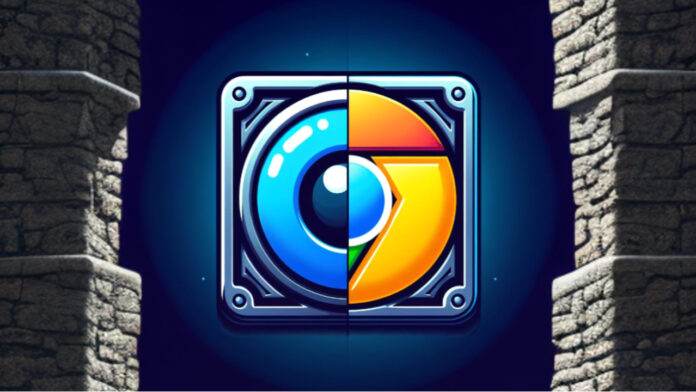When it comes to web browsing, Chromium and Chrome are often mentioned in the same breath. However, they are not the same thing. Understanding the nuances between the two can significantly impact your browsing experience. Let’s delve into the battle of chromium vs chrome.
What is Chromium?
Chromium serves as the foundation for many web browsers, including Google Chrome. It’s an open-source project developed by Google, providing the core components and rendering engine for various browsers. With its open nature, developers can access and modify the source code to create their own browsers tailored to specific needs. Features of Chromium include a fast and efficient browsing experience, extensive developer tools, and compatibility with various operating systems.
What is Chrome?
Chrome, on the other hand, is a web browser developed by Google, built upon the Chromium project. While Chromium forms the backbone, Chrome adds proprietary features and optimizations to enhance the user experience. These features often include integrated services like Google account syncing, automatic updates, and additional security measures. Chrome is widely popular among users due to its user-friendly interface and seamless integration with other Google services.
Key Differences
Licensing
One of the primary distinctions between Chromium and Chrome lies in their licensing. Chromium is released under the open-source BSD license, allowing anyone to modify and distribute the code freely. In contrast, Chrome includes proprietary components, and its license agreements restrict redistribution, making it less flexible for developers.
Updates and Stability
Chrome enjoys more frequent updates and a rigorous testing process, resulting in a more stable browsing experience compared to Chromium. While Chromium receives regular updates, they may not undergo the same level of scrutiny, leading to potential stability issues for users who prioritize reliability.
User Interface and Branding
Chrome features a polished user interface with branding elements specific to Google, such as the familiar multi-colored logo and integration with Google services. Chromium, on the other hand, offers a more basic interface with fewer branding elements, allowing for a cleaner and more customizable browsing experience.
Additional Features
Chrome incorporates additional features not found in Chromium, including built-in support for Adobe Flash Player, PDF viewer, and various security enhancements. These features contribute to Chrome’s popularity among users seeking a comprehensive and hassle-free browsing solution.
Performance Comparison
Speed
Both Chromium and Chrome utilize the same rendering engine, resulting in comparable browsing speeds. However, Chrome’s proprietary optimizations may provide a slight edge in certain scenarios, particularly when handling resource-intensive web applications.
Resource Usage
Chrome tends to consume more system resources compared to Chromium, primarily due to its integrated services and additional features. While this may not be a significant issue for high-end hardware, users with limited resources may prefer Chromium for its lighter footprint.
Security
Chrome’s proprietary security features, combined with its regular updates, make it a more secure option for browsing the web. While Chromium benefits from community-driven security patches, Chrome’s dedicated security team and rapid response to vulnerabilities offer an extra layer of protection against emerging threats.
Use Cases
Chromium finds its applications in various projects beyond traditional web browsers. Developers often leverage Chromium’s rendering engine and libraries to build specialized browsers, embedded systems, and custom applications tailored to specific use cases. Chrome, on the other hand, remains the preferred choice for everyday browsing among consumers and businesses alike, thanks to its user-friendly interface and seamless integration with other Google services.
Which One Should You Choose?
When deciding between Chromium and Chrome, consider your priorities and preferences. If you value flexibility, customization, and open-source principles, Chromium may be the better option for you. On the other hand, if you prioritize stability, security, and seamless integration with Google’s ecosystem, Chrome offers a comprehensive browsing solution tailored to your needs.
Conclusion
In conclusion, although Chromium and Chrome originate from the same source, they serve distinct audiences and purposes. Recognizing the disparities between the two can empower you to make a well-informed choice according to your browsing needs and preferences. Whether you lean towards the adaptable open-source nature of Chromium or the refined functionality of Chrome, both platforms provide robust options for navigating the web. Remember, understanding these differences is crucial, especially when choosing between ‘Unleashing the Power of Superscript in Google Docs‘ and other features.
Unique FAQs
- Is Chromium safer than Chrome?
- While both browsers offer robust security features, Chrome’s dedicated security team and rapid updates may provide a slight edge in terms of security.
- Can I use Chrome extensions with Chromium?
- Yes, most Chrome extensions are compatible with Chromium since they share the same underlying framework.
- Does Chromium support automatic updates like Chrome?
- Chromium does receive regular updates, but users may need to manually update the browser or rely on third-party distributions for automatic updates.
- Are there any privacy concerns with using Chrome?
- Chrome’s integration with Google services may raise privacy concerns for some users, as it collects data for personalized ads and analytics. However, users can adjust privacy settings to mitigate these concerns.
- Which browser consumes fewer system resources, Chromium, or Chrome?
- Generally, Chromium consumes fewer resources compared to Chrome due to its lack of integrated services and additional features. However, the difference may vary depending on individual usage patterns and system configurations.

